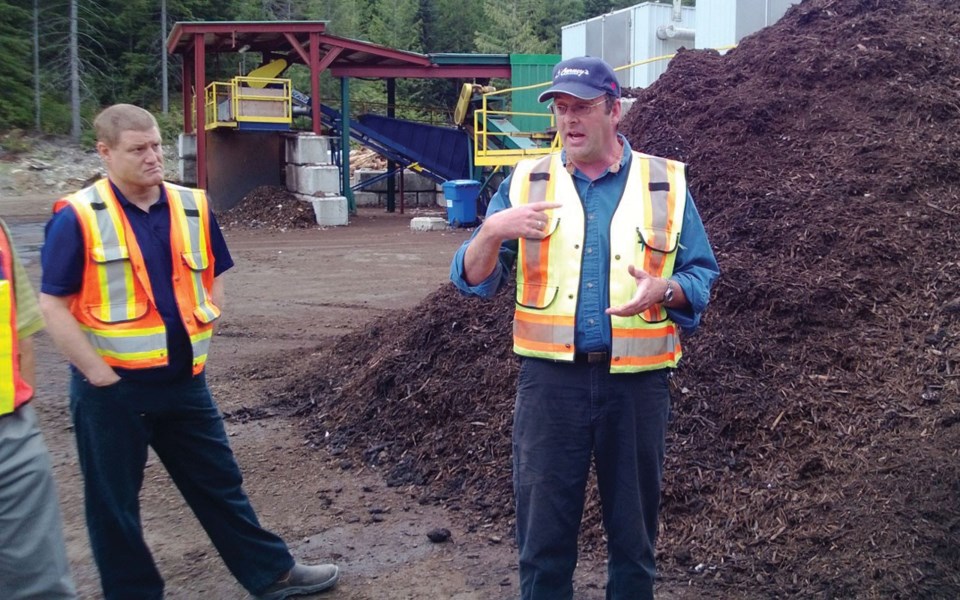Mayor and council have authorized a contract to build a woodchip storage building at the Whistler Compost Facility (WCF) for close to a million dollars.
At the Tuesday, July 24 meeting of council, elected officials voted to award a contract to SpanMaster Structures Ltd. to build a 46-by-18-metre extension to an existing storage shelter building to the tune of $961,078. The RMOW expects the project cost to be covered in its entirety by a Union of B.C. Municipalities grant.
Woodchips are mixed with biosolids to produce compost at the WCF in the Callaghan; the facility processed 7,200 tonnes of biosolids and used approximately 9,700 tonnes of woodchips last year. Operational staff adds woodchips or biosolids to the mix depending on which material has the lower moisture content. When the wood is dry, fewer woodchips are needed in every batch, leaving more room for biosolids to be added.
By erecting the steel cladding storage building, the RMOW anticipates it will increase its capacity at the WCF by about 15 per cent.
"By simply keeping woodchips dry, it dramatically makes a big difference to the compost process," explained Andrew Tucker, manager of transportation and waste management for the RMOW. "Our revenue stays the same, as we're still receiving the same amount of biosolids, but our expenses go down."
Currently, the woodchips at the WCF are stored in windrows under plastic tarps, and the lack of proper storage and poor drainage has limited the facility's compost production capacity.
"It's difficult for the operators to access the woodchips from the tarps without mixing snow into the wood," Tucker added. "Once snow is introduced into the chips, it becomes wet and it's no longer usable at that point in the process."
Coun. Steve Anderson acknowledged the seemingly steep cost of the project.
"This is the reality when we're dealing with projects done by the RMOW and engineered by the staff; every single little nuance is addressed and it's just not cheap," he said. "When I hear folks in the community get all upset about the price of things, and then they also want the highest environmental standards, those two things, they just have to be taken in concert together. I think that's why this particular project is what it is."
At Tuesday's meeting, council also authorized the transfer of $400,000 from the 2019 municipal budget to the 2018 budget in order to cover the full cost of constructing the building this year. The construction of an aerated floor and heat exchange system at the site is slated for next year and will be covered by the 2019 project budget.




